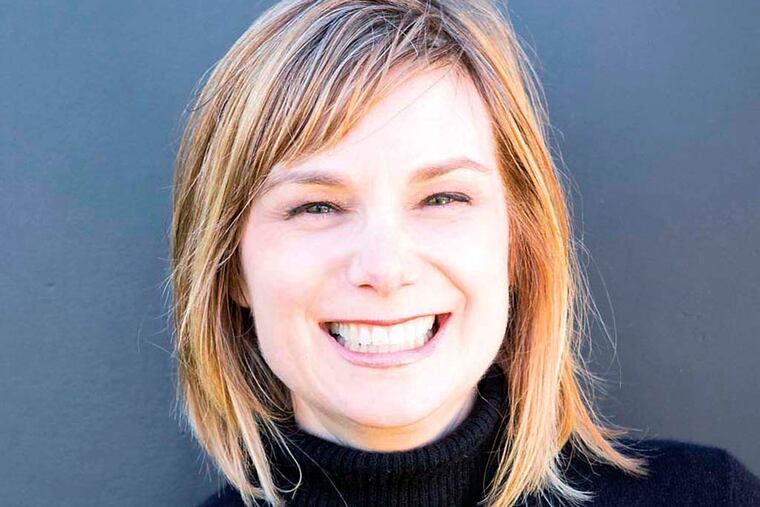
When Yael Lehmann joined the Food Trust in 2001, she spent much of her time explaining that, though the nonprofit works on food access, it is not, in fact, a food bank.
Since then, food access has become a hot issue. And the organization, whose staff has increased from five to 107, has helped bring fresh produce to 600 corner stores in the city, nutrition educators to 100 schools, and 27 farmers' markets to underserved neighborhoods.
We asked Lehmann, Food Trust executive director, about that work, the popularity of the food-truck Night Market events, and being a full-time mother and part-time rocker for the band Happy Accident, with her husband, Blake, and the Food Trust's Brian Lang.
Q. Your mission is access to fresh food in low-income areas, but your marquee events, Headhouse Farmers' Market and Night Market, draw a more upscale clientele. How does that tie into your mission?
A. Our primary focus is and always will be low-income families, but we're also very interested in supporting local agriculture. One thing we heard before launching Headhouse Farmers' Market was, "All great cities have a big farmers' market. Philly doesn't have one." We weren't sure Philly could support a market with 30 vendors. I will never forget opening day there, when it was just streams of people. We were jumping up and down, because clearly there was this huge demand for a space where you could come hang out and interact. I think this is true for Night Market, as well. There's a component to the work we do which I think is critical, which is about food as a vehicle to bring people together, to get them engaged.
Q. There's been a lot of debate about whether food deserts are a real problem.
A. If you live in a neighborhood that doesn't have anywhere to buy decent food, you don't need someone to debate whether this thing some people like to call "food deserts" exists. And some people debate will having a grocery store nearby improve health? We're not saying a grocery store is a silver bullet. We're saying it's part of a comprehensive approach. We want to have farmers' markets, decent school food, and corner stores that aren't only selling lottery tickets and cherry-flavored cigars. We're saying, let's remove all the barriers . . . that's what will bring an improved health outcome.
Q. Has bringing farmers' markets into neighborhoods gotten easier?
A. There's been a huge shift. The overwhelming response maybe 10 years ago was, "There's going to be trash." Now, there's not the same hesitation. Also, we can [now] do cooking demonstrations at farmers' markets. Tasting something is so powerful . . . the demonstrations have been a huge hit.
Q. So is your son, Elliott, the poster child for healthy school lunches?
A. He does eat fruit and carrots. But I get it. You do the best you can with kids. No one should ever feel bad about what they're eating. It's not about that. It's about what's equitable and fair, and what choices do we have in our neighborhoods. We all deserve to have choices [that] include healthy, high-quality foods.
Q. You recently played with your band at a Night Market. How often are your gigs?
A. Just enough that we have to rehearse. It's something fun to do together, and we'll always keep doing it, no matter how old we get - even if people want us to stop.
215-854-5053
@samanthamelamed